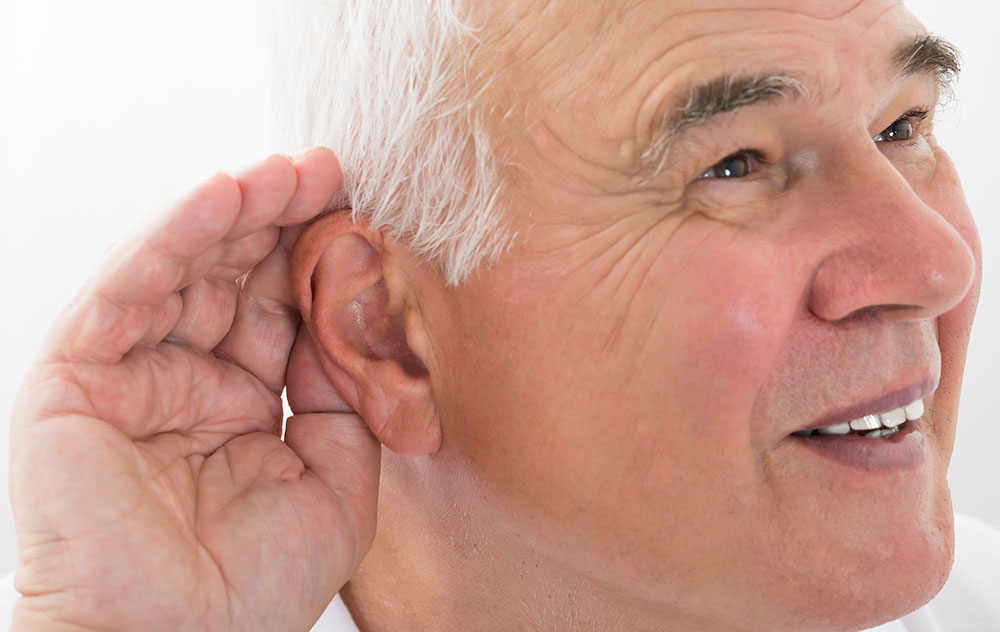What is an Air Conduction Hearing Aid?
Various choices of hearing instruments are available for people who have
Now part of the Beltone Hearing Care Network, visit www.beltonesound.com for a complete listing of all locations

Hearing loss is often related to age, but many instances of it, such as noise induced, can be prevented or at least reduced. This type of hearing loss can be prevented by taking small precautions to protect your ability. By taking care of your hearing, you can avoid hearing loss that results from loud and repetitive noise. People who work in certain professions might need to be careful about excessive noise, but it's also important to look after your ears outside of work. If you don't take the necessary steps to protect your ears, it could lead to hearing loss and other problems, such as tinnitus. Hearing protection can help you to prevent damage in a range of environments.
Hearing protection is designed to protect your ears in any environment when you might be exposed to high levels of noise. For example, you might work on construction sites or in an industrial environment or you might enjoy spending time at festivals and music concerts. Hearing protection products can include earplugs and ear defenders, which help to muffle sound and limit how much your ears are exposed to loud noise. Using well-fitting hearing protection has a number of benefits, whether you use them regularly or you only need to wear them on occasion. You can prevent noise-induced hearing loss by wearing hearing protection and by ensuring you wear it correctly.
Using hearing protection is particularly beneficial for certain people. Anyone who has a job that involves working in noisy environments should wear ear protection to prevent damage to their hearing. This could include people who work in manufacturing, construction workers, airport staff or performers such as musicians. If you work in noisy environments, regular exposure to loud sounds can lead to work-related hearing loss. The sound doesn't even need to be that loud if it's something that you experience every day. However, it's not only people at work who should protect their ears. Many other activities might require ear protection, from going to live music events to spending time at the shooting range.
Sometimes it's up to you to take personal responsibility to protect your hearing. However, if you do work in noisy environments, your employer has a responsibility to protect you. They need to provide you with protective equipment to prevent hearing loss, as well as any other protective wear that might prevent injuries at work. When the noise level can't be lowered, it's up to your employer to provide hearing protection devices that you can wear while you're working. Make sure they provide effective protection that fits, as well as any necessary training.
It's important to be able to choose the right hearing protection to prevent damage to your ears. Not all hearing protection is suitable for every environment and it won't always be a good fit. To choose the right hearing protection, you need to know about your available options, including ear muffs and earplugs. When you're deciding which ear protection is right for you, take a look at how much noise they can block out. Earplugs tend to be more effective, but combining the two types of protection is even better for high-level noise.
It's also important to make sure that you wear your hearing protection properly too. If you don't use them as they are designed to be used, they won't provide the protection that you're looking for. They should fit comfortably, especially if you need to wear your hearing protection every day. You may also need to keep your hearing protection clean and regularly check for any damage to ensure they're still working as they should.
If you don't protect your hearing, tinnitus is one of the problems that you can face. Tinnitus is characterized by hearing noises that aren't present externally, including ringing, buzzing, whistling and more. It's often linked to hearing loss, although the exact reason that tinnitus occurs isn't completely understood. Many people have experienced ringing in their ears for a short period after being exposed to loud noises, but chronic tinnitus can affect your life much more. It can cause stress and anxiety and disrupt your sleep. It often goes hand-in-hand with hearing loss, which can also cause problems. Both tinnitus and hearing loss can be addressed through the use of hearing aids and other devices and treatments.
To find out more about tinnitus and hearing protection, get in touch with The Hearing House by calling (715) 384-4700.

Various choices of hearing instruments are available for people who have

One of the first assumptions that people have when they experience hearing

Hearing aids are an incredibly useful technology for those experiencing